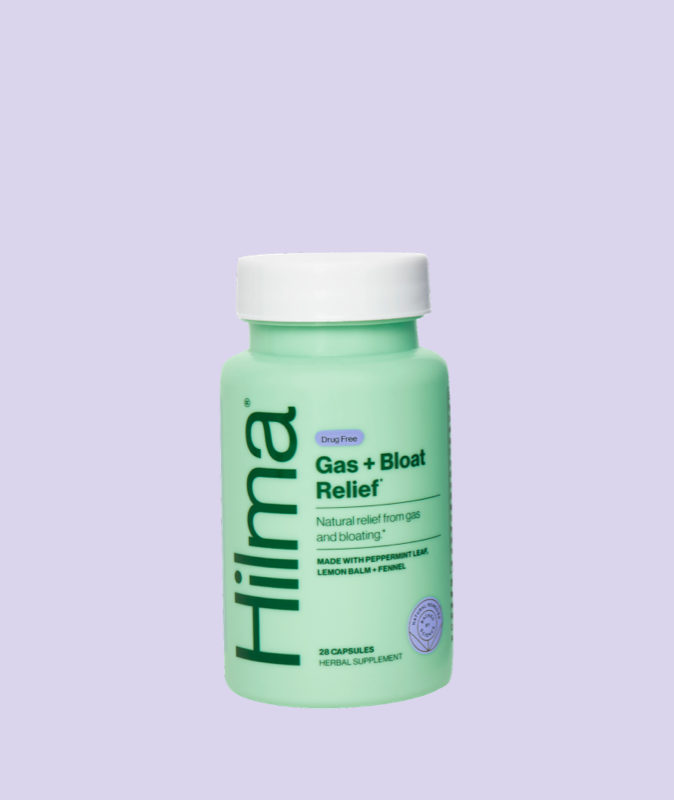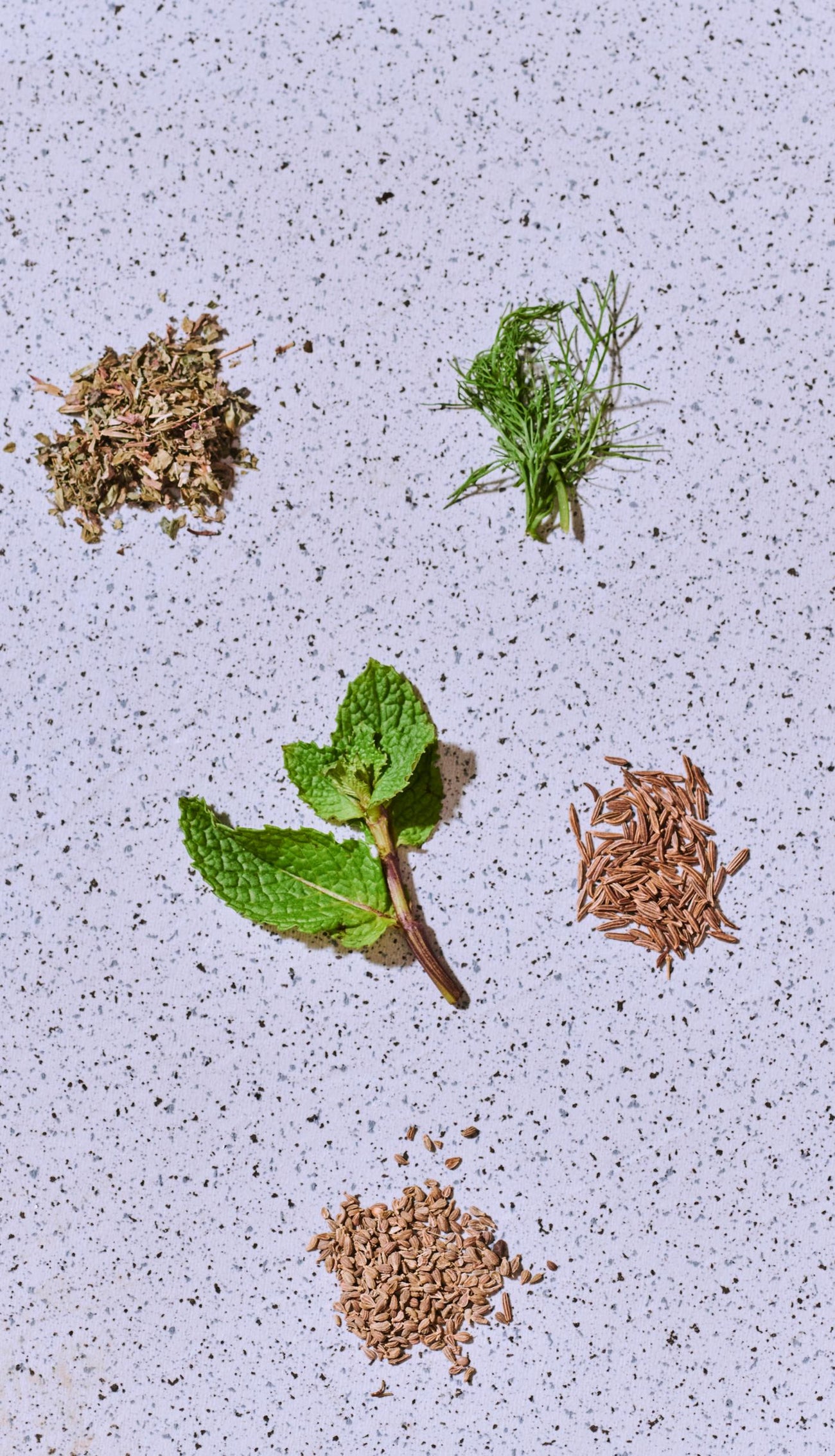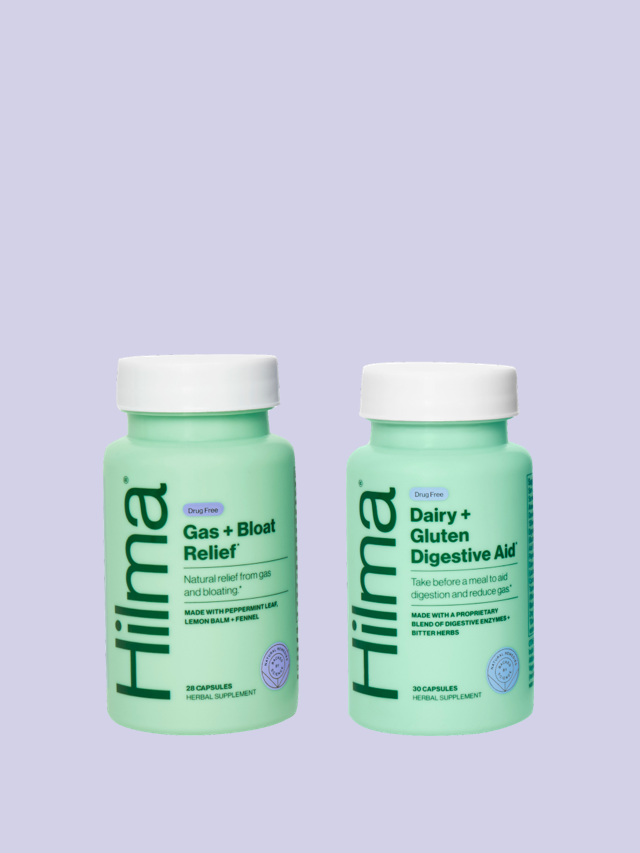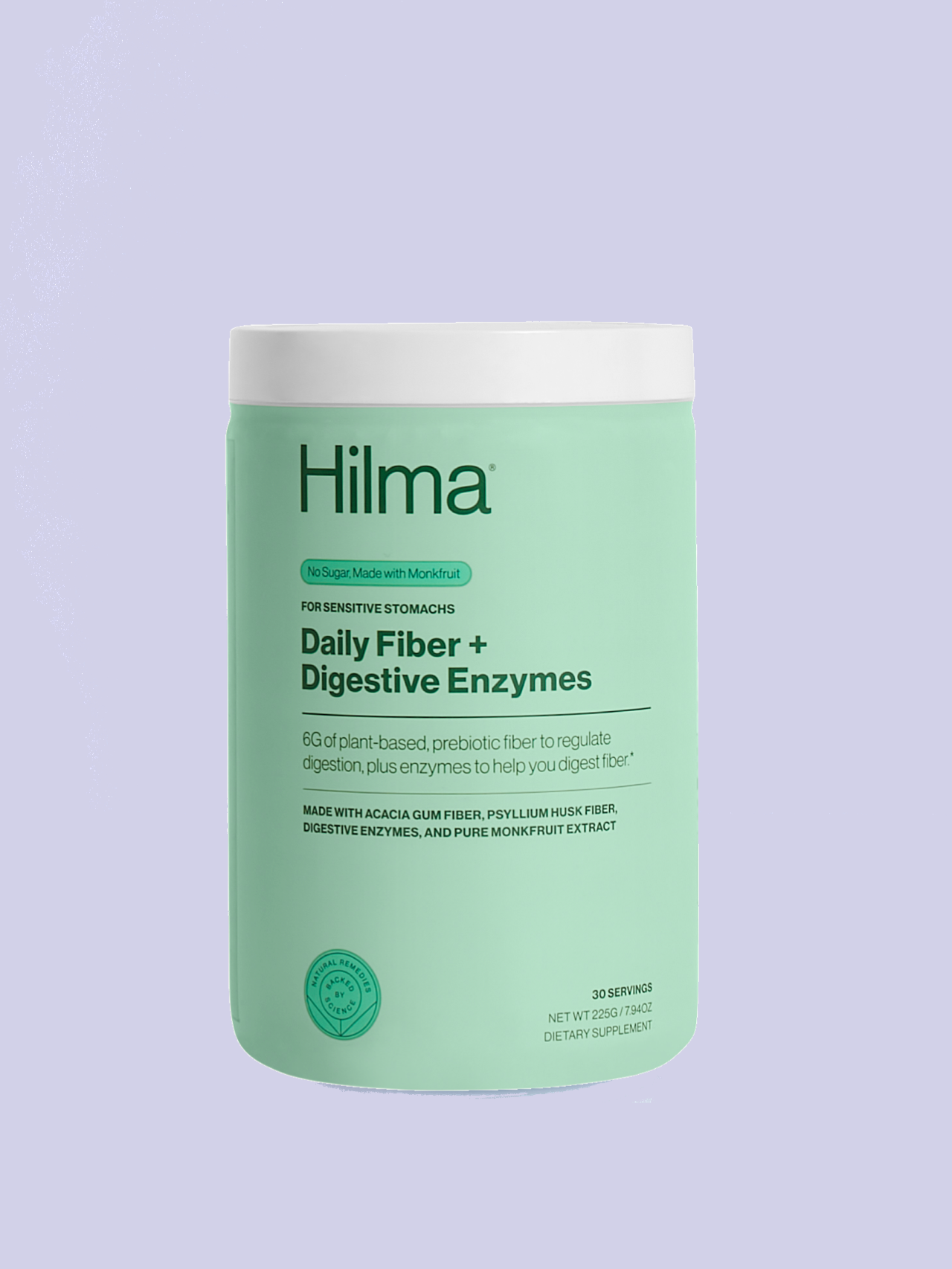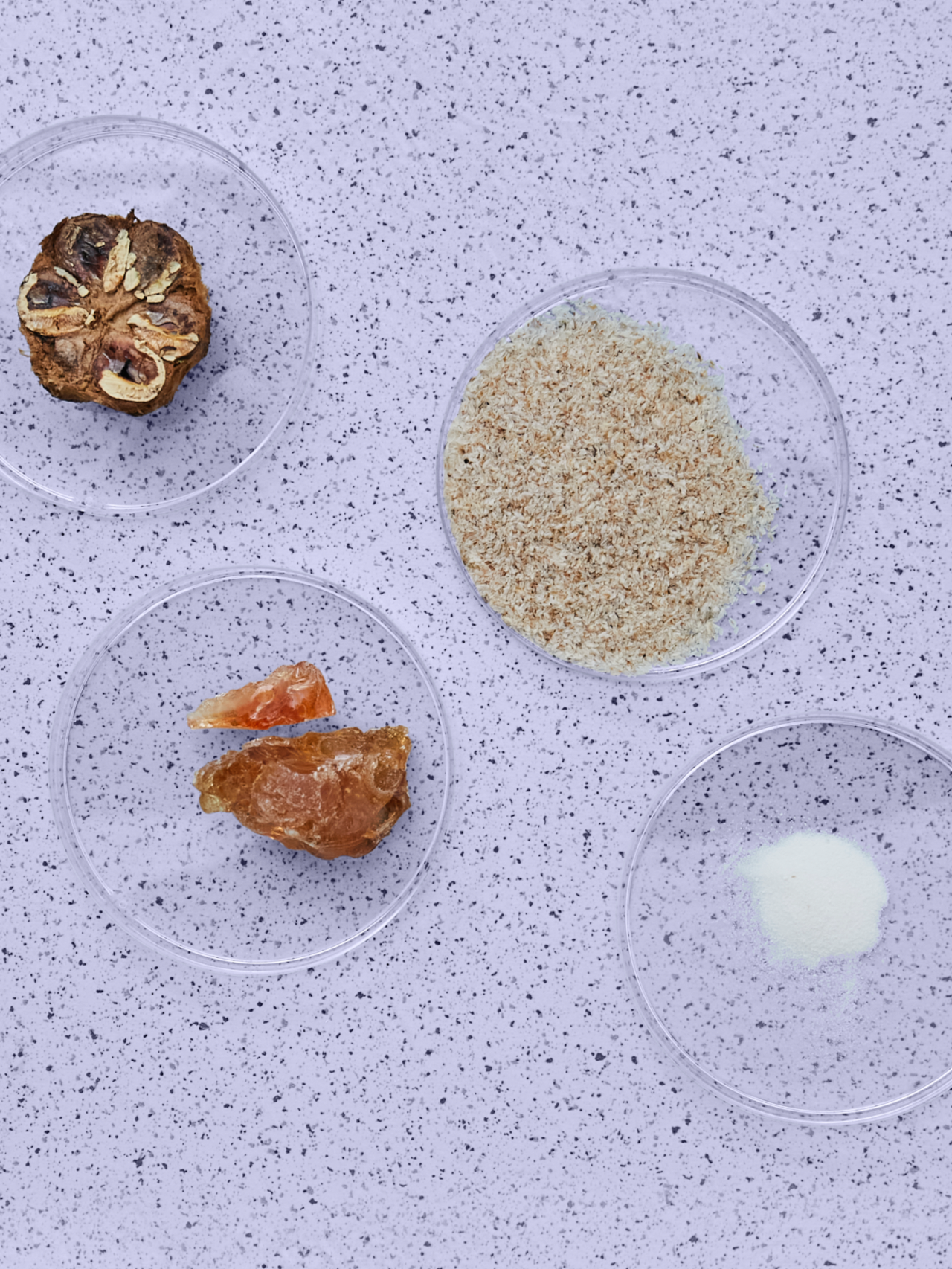
What is the gut-brain axis?
The gut-brain axis refers to the vagus nerve, a collection of nerves between the gut and the brain. 90% of the nerves between the brain and gut deliver information from the gut to the brain. That means that far more information from your gut is delivered to your brain than your brain telling your gut what to do or how to behave.
These nerves form a significant part of the enteric nervous system (ENS), commonly known as “the second brain.” Unlike the central nervous system (CNS), which is responsible for information and functions throughout the body, the ENS nerve cells specifically regulate the functions of the gastrointestinal tract. While the ENS regulates digestive function, it is comprised of neural cells that mirror those found in the brain.
Gut bacteria break down food particles that release compounds called short-chain fatty acids that are sensed by the vagus nerve. The gut is constantly using this communication network to update the brain on what is going on down there, from the quality of food to how the immune system is responding. This informs how the brain reacts.
How is it affected by stress?
Since 90% of the nerves are in one direction, that leaves 10% of the nerves to deliver information from the brain to the gut. So, when there is a stressful situation, the brain might notify the gut to lower its workload and save energy for the stressful situation.
Have you ever experienced nervous diarrhea or vomiting? That is your body trying to get rid of food that it does not want to take the energy to digest!
Additionally, when the vagus nerve is occupied by stress, it does not release anti-inflammatory molecules to tame inflammation in the body. Gut microbes are especially sensitive to inflammation, such as that produced by stress; therefore, stress can lead to inflammatory-related damage in the gut.
How does stress & anxiety trigger IBS?
A stressed brain means a stressed gut! When you are feeling stressed or anxious, your body releases chemicals. As noted above, those chemicals can lead to nervous diarrhea but also additional pain.
This repetitive action by the nervous system can produce dysbiosis, basically a mess of gut bacteria. Dysbiosis refers to a low level of gut microbial diversity in the gut microbiota. And we want a high diversity!
This dysbiosis increases the prevalence of harmful bacteria strains and decreases the prevalence of beneficial strains in the gut. This dysbiosis occurs in IBS (Irritable Bowel Syndrome), producing all of the familiar symptoms of bloating, abdominal pain, constipation, diarrhea, and constipation.
What do specific stomach issues say about what’s going on in your brain-gut axis? In other words, are there certain emotions that manifest in certain symptoms?
Signs of a stressed gut include bloating, abdominal pain, constipation, diarrhea, and excess flatulence. One specific symptom does not necessarily connect to one specific emotion, but paying attention to how you are feeling and how your gut is behaving can help give you some answers.
But remember: stress can manifest differently in different bodies. Next time you have a gut feeling that something is a bit off, before immediately blaming the food you’ve eaten, take a second to think about how you are feeling emotionally. You may find the answer there.
What routines and rituals can one integrate into their everyday life to support the brain-gut axis?
Daily gut support does not need to be complicated!
Fiber + Prebiotics
A decent amount of fiber in your diet helps support your gut healthby fueling gut bacteria, encouraging strong gut motility, and strengthening the cells that line your intestines. An easy switch to increase fiber in your gut is selecting whole-grain or seeded bread instead of white bread options.
Fiber additionally includes prebiotics, which are food for our healthy gut bacteria. Prebiotics are found in most plants, from almonds and apricots to asparagus and chamomile tea. If you include a diversity of plants and colors in your diet, your gut bacteria will be happy!
Fiber can also support your digestive health by encouraging bulk in your stools, aiding in regularity. For added support when dealing with constipation or regularity, try our Gentle Bowel Movement Support.
Probiotics
These live bacteria and yeast aren’t just good for your digestive health but for skin health, urinary health, and more. Our bodies are full of beneficial bacteria and fungi that keep us in balance and allow our bodies to function smoothly.
You can find probiotics, like Lactobacillus and Bifidobacterium, in fermented foods like yogurt, sauerkraut, and kimchi or in supplement form.
Probiotics help to balance your gut bacteria and play an important role in aiding digestion and improving immune function. They can also help your body produce vitamins, digest food, and control the overgrowth of bad bacteria and harmful microorganisms.
Consider adding a probiotic-rich food or supplement to your daily routine to help support the brain-gut connection.
Avoid Processed Food and Sugar
Processed foods and sugars are not your gut's best friends. They can lead to inflammation in the GI tract and disrupt the balance of your gut bacteria, potentially leading to dysbiosis. Instead, aim to consume a diet rich in whole foods, fruits, vegetables, lean proteins, and healthy fats.
These foods are not only nutrient-dense but also provide the necessary fuel for your gut bacteria to thrive. Reducing your sugar intake can also help prevent spikes in blood sugar that can lead to cravings and overeating, which can further stress your gut and digestive system.
Exercise
Daily movement is another recommendation that plays a crucial role in your overall health and well-being. If someone is experiencing bloating or constipation, movement can help relieve these symptoms because it literally gets the gut moving.
This movement can help relieve trapped gas within the gastrointestinal tract or push a bowel movement along. For bloating in particular, gentle twists and certain yoga poses can aid in digestive support.
Hydration
Proper hydration is essential for your gut as water aids in digestion, helps deliver nutrients to your cells, and keeps your intestines smooth and flexible. It also plays a crucial role in brain function as it helps to produce hormones, neurons, and neurotransmitters, maintains brain structure, ensures efficient nutrient supply, and helps to remove toxins from the brain.
Make sure you're drinking plenty of water throughout the day. If you find plain water boring, try adding a slice of lemon or our Stomach Recover + Hydrate for a refreshing twist.
Stress Levels
When you're stressed, the body increases its cortisol production, which then triggers a stress response within your body. The so-called "fight or flight" mode can cause digestive dysfunction, result in gut inflammation, and disrupt your gut microbiome.
Regular physical activity, mindfulness, meditation, and yoga are popular interventions for stress management that can reduce stress levels and promote relaxation. Consider setting aside time each day to do something you enjoy, whether that's reading a book, listening to music, or spending time in nature.
Limit Alcohol and Quit Smoking
Both alcohol and smoking can wreak havoc on your gut health. Alcohol can disrupt your gut bacteria, leading to dysbiosis and inflammation, while smoking can damage the stomach lining and increase the risk of stomach ulcers and cancer.
Try to limit your alcohol intake, and if you smoke, consider seeking help to quit. Remember, your gut is connected to your brain, so taking care of your gut health can also have positive effects on your mental well-being.
Sleep
Lastly, do not forget about sleep! Sleep affects everything. Sleep is when your body, including your gut, rests, recovers, and strengthens in preparation for the next day.
Regular bedtimes, morning routines, and time away from your phone before falling asleep can be very therapeutic for your gut health. Aim for at least seven to nine hours each night to give the gut-brain axis the time it needs to stay healthy. For added help getting the sleep you need, try our Sleep Support with Magnesium Glycinate, Reishi, L-Theanine, and Passion Flower.
How does a healthy gut help combat anxiety?
Bacteria in your gut produce neurotransmitters like serotonin, dopamine, and GABA. Ninety-five percent of serotonin in the body is produced in the gut. Serotonin is a happiness hormone that plays a key role in your cognitive function!
If your gut is happy, it can focus on supporting your mental health and fending off mood disorders through the production of neurotransmitters that regulate mood, anxiety, and happiness.
Secondly, for the gut to be healthy, it needs to be able to block harmful bacteria from sticking around. A gut with high diversity includes a variety of bacteria, increasing the odds that the gut will be resilient to an intruder.
A high prevalence of beneficial bacteria also increases the amount of metabolites and short-chain fatty acids that are produced. These metabolites help communicate what is going on to the brain and strengthen the lining of the intestines.
Short-chain fatty acids are the compounds that bacteria produce from prebiotics (another plug to consume lots of plants!). This strengthening of the barrier between our gut and our intestines decreases the odds of any toxins and undigested food particles from entering the intestines, causing inflammation. And this inflammation, if not prevented, would negatively affect the nervous system, triggering symptoms of depression and anxiety.
To summarize, a healthy gut can help combat anxiety through:
- Producing mood-regulating chemicals
- Increasing the body’s resilience against harmful bacteria
- Strengthening intestinal walls, decreasing inflammation, and allowing bacteria to focus on producing mood-regulating chemicals
What herbs support the gut-brain axis, and how?
To help support the gut-brain axis, herbs and natural ingredients can play a role in regular maintenance and/or healing previous damage.
-
Aloe: Aloe is a beautiful green plant that, similar to how you might think of it as soothing for a sunburn, can be soothing internally to your intestines.
-
Deglycyrrhizinated licorice (DGL):DGL is another soothing ingredient. It helps the body repair the gut lining by replenishing the mucus, which creates a healthy intestinal barrier. Our Heartburn + Indigestion contains DGL to help soothe your digestive tract.
-
Flax seeds: Flax seeds are plentiful in omega-3 fatty acids. These fatty acids reduce inflammation by acting as a fuel to gut bacteria (remember those short-chain fatty acids!) and as a natural laxative to relieve constipation. I enjoy adding them to my morning oatmeal or smoothie.
-
Turmeric: Turmeric is a golden spice that has been lauded for its anti-inflammatory properties. Curcumin, the active compound in turmeric, can help soothe the gut lining, which can be especially beneficial for individuals with gut disorders. Incorporating turmeric into your meals or taking it as a supplement can be a great way to support your gut-brain axis.
-
Ginger: Ginger is a potent root that aids digestion and can help soothe the symptoms of nausea and upset stomach. It's also been found to have anti-inflammatory and antioxidant effects, which can help support your gut health. You can enjoy ginger in teas, soups, or in digestive supplements.
-
Peppermint: Peppermint has been used for centuries to soothe digestive issues. It can help relax the muscles of your gastrointestinal tract, calming symptoms of bloating, gas, and stomach discomfort. Try sipping on some peppermint tea after meals or taking Gas + Bloat Relief to aid digestion and support your gut-brain axis.
-
Chamomile: Chamomile is a calming herb that can help soothe stress and promote sleep, both of which are beneficial for your gut health. It's also been found to have anti-inflammatory properties that can calm the digestive tract. Enjoy a cup of chamomile tea before bed to reap its benefits.
-
Slippery elm: Slippery elm is a herb that has been used traditionally to soothe the digestive tract. It forms a slick gel when mixed with water, which can help protect the lining of the gut from irritation. Slippery elm can be taken as a supplement or brewed into a tea.
-
Marshmallow root: Marshmallow root, like slippery elm, forms a soothing gel that can coat the lining of the stomach and intestines. This can help protect against irritation, supporting overall gut health. Marshmallow root can be taken in supplement form or as a tea.
Sources:
The Gut-Brain Axis: Influence of Microbiota on Mood and Mental Health | PMC
The Enteric Nervous System and Its Emerging Role as a Therapeutic Target | PMC
The Vagus Nerve and the Inflammatory Reflex—Linking Immunity and Metabolism | PMC
Understanding the Stress Response | Harvard Health
Gut Microbiota Dysbiosis: Triggers, Consequences, Diagnostic and Therapeutic Options | PMC
Stress and the Gut | UNC School of Medicine
Excessive Intake of Sugar: An Accomplice of Inflammation | PMC
The Gut-Brain Axis: Influence of Microbiota on Mood and Mental Health | PMC
